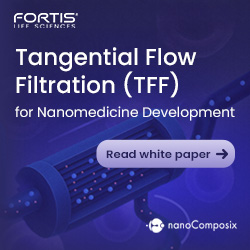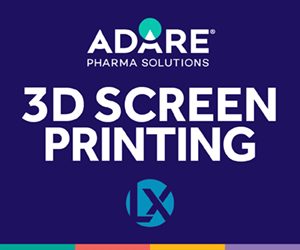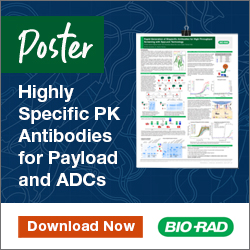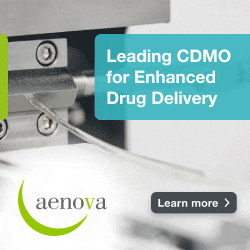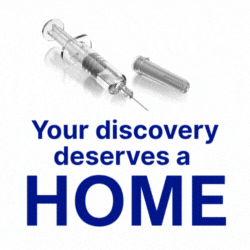Issue:May 2013
SPECIAL REPORT - Prefilled Syringes & Parenteral Contract Manufacturing: Improving for Flexibility & Customization
Arise in biologics and complex compounds-specifically in large-molecule drugs that require innovative injection methods-is driving the prefilled syringe market. The erosion of the blockbuster model, expiring patents, and growing competition have also increased the need for differentiation in drug delivery, while changes in demographics, particularly in the growing homecare sector, increase the need for convenient and safe administration forms that are user friendly, reliable and cost conscious. Prefilled syringes may offer intelligent and efficient answers for these current and upcoming needs.

Many vaccines are transitioning to prefilled syringes, and with established markets such as anticoagulants and biologics, there will continue to be steady growth. According to the report, “Global Prefilled Syringes Market: Trends & Opportunities (2012-2017),” in 2011, 2.45 billion syringe units were sold and are predicted to hit unit sales of 3.59 billion in 2015.
Also growing is the sterile parenteral contract services sector within the total sterile CMO market. According to Frost & Sullivan, sterile parenteral contract services make up about 82.8% of the total sterile CMO market. This includes small-volume parenterals (vials, ampoules, and syringes), which make up the majority of sterile CMO services with 88.9% of market share, and large-volume parenterals (bags and bottles). Thus, the sterile parenteral manufacturing subsegment is expected to reach a market size of $6.5 billion by the end of 2016. In this exclusive Drug Development and Delivery Magazine annual report on the prefilled syringe and parenteral manufacturing markets, leading drug delivery and contract development and manufacturing organizations (CDMOs) offer their insight into how the devices are evolving-from closure to container.
BD MEDICAL – PHARMACEUTICAL SYSTEMS- NEXT-GENERATION TECHNOLOGIES
The exposure of healthcare practitioners to blood-borne pathogens as a result of injuries caused by needlesticks is a significant public health concern. BD, which provides prefillable syringes, selfadministration solutions, and safety and shielding systems, has seen an increase in legislation on a global scale with respect to this concern. The EU passed mandate 2010/32/EU, which requires all EU member countries to address the danger of accidental sharps injuries (including needlesticks) by enforcing this legislation by May 2013. It is anticipated that this increasing legislation will impact the presentation of injectables, especially those in prefilled syringes. Although this legislation has not specifically targeted the pharmaceutical manufacturer, many pharmaceutical companies are using this as an opportunity for brand differentiation as they are seeing value in offering safer injection presentations for endusers, explains Sarah Baer, Marketing Product Manager.
Add to this the fact that 7 of the 10 topselling drugs worldwide, and more than 60% of drugs in development are biologics, with an increasing number planned for the selfinjection market. These drugs require the most advanced primary and secondary container technologies due to their heightened sensitivities, high development costs, and increasing needs from patients suffering from the chronic diseases they are meant to treat.
BD Medical – Pharmaceutical Systems is focused on improving healthcare worker safety, and offering higher-value products, which has been demonstrated by its recent acquisition of Safety Syringes, Inc.
The company’s latest product is the BD UltraSafe PLUSâ„¢ Passive Needle Guard, which is designed to facilitate ease of use for both healthcare providers and self-injecting patients when manual injection control is preferred. In addition, this safety device is designed to meet increasingly complex biotechnology drug requirements, including higher viscosity. The BD UltraSafe PLUS Passive Needle Guard includes a plunger rod to help support injection of viscous drugs, a larger drug inspection window to improve drug visibility, extended built-in finger flanges, and an enhanced plunger head for improved injection support and stability.
BD also introduced the BD Vystraâ„¢ Disposable Pen within the last year. This selfinjection pen has been designed for use with a range of therapies that require frequent, low-volume injections or variable dosing, according to Megan Lan, Worldwide Strategic Marketing Manager.
The BD Neopakâ„¢ Prefilled Syringe is the company’s next generation glass prefillable syringe engineered to specifically meet the needs of the biopharmaceutical injectable drug market, explains Amanda Davis, Senior Product Marketing Manager.
BD is now developing the BDâ„¢ Microinfusor patch injector to address the delivery needs of next generation biologic therapies. According to Surya Viswanathan, Strategic Marketing Manager, it is a singleuse, disposable, prefilled, automatic injection system that is hands-free during drug delivery, leveraging the company’s container technologies.

BATTELLE-DELIVERING HIGH-VISCOUS AND HIGHVOLUME FLUIDS
Improving the usability of prefilled syringes is the dominant trend in the industry. Even devices that have been on the market for years need to be reassessed to ensure they are actually being correctly used by patients. But pharma often is driven by a need to innovate without making changes. While this appears contradictory, prefilled syringes are a stable platform that can be used as a foundation to build new delivery technologies. This allows pharma to keep what they know, while allowing the industry to move forward with devices that provide a better patient experience.
For companies bringing new combination products to market, Battelle’s Drug Delivery service provides a crossdisciplinary approach that combines capabilities in device development, formulation, human factors testing, and usability studies, explains Alexa Konstantinos, Battelle’s Director of Business Development for Medical Products. By focusing on the entire system (formulation, device and patient) during development, this approach can reduce the risk of innovation and overcome the challenges with delivering viscous formulations. “By integrating our human-centric design capabilities with our engineering and formulation teams, Battelle has helped clients develop intuitive devices that address human factors testing the first time without delaying a product launch,” said Ms. Konstantinos.
Battelle is developing technologies to address the challenges of delivering highviscosity and/or high-volume therapeutics, particularly for patients with compromised dexterity and strength who must self-inject. “We are developing a chemical reactiondriven injection ‘engine’ technology that could be used to deliver a high-viscosity formulation in a short time period without changes to the primary container closure of the prefilled syringe. The same technology could also be tuned to deliver a larger volume over a longer time frame for use in a bolus injector-type device,” said Chris Muenzer, Principal Research Scientist for Battelle.
Battelle has renewed its alliance with Zogenix to continue the development of DosePro®, a prefilled, needle-free, disposable, subcutaneous delivery technology. “We will continue working with our existing clients to design and develop new prefilled pens and auto-injectors and seek opportunities to partner on our new technologies related to highviscosity delivery,” said Ms. Konstantinos.

COLDSTREAM LABORATORIES, INC.-FLEXIBILITY IN LIQUID AND LYOPHILIZED FORMULATIONS
Flexibility in manufacturing is more important than ever in contract manufacturing, particularly in the parenterals space. Coldstream leverages its flexible, mobile isolator technology to offer aseptic manufacturing solutions to allow it to carry out processes that previously may not have been deemed practical. Through its isolator system, Coldstream accommodates a variety of processes, including complex formulation procedures in a high-containment environment. Coldstream is a CDMO focusing on the cGMP manufacture of injectable products, with a full platform of analytical, microbiology, and formulation development capabilities.
Irrespective of the nature of the products being manufactured, the first step in every project at Coldstream is to evaluate the potency of the active ingredient to be handled. This process includes a gap analysis to assess the information available about the product and the process to be used to manufacture the finished product. A risk assessment process helps identify appropriate handling procedures in order to ensure safe operations.
A typical project at Coldstream involves identification of a suitable process to safely and efficiently manufacture drug product to be used in early clinical trials. Challenges at this stage vary and frequently timelines are tight. The company has invested heavily in equipment and personnel in order to ensure the processes are developed and transferred efficiently to plant scale.
Mobile isolator technology serves as the heart of Coldstream’s manufacturing facility, which is suited for manufacturing smallvolume parenteral products for clinical trials and niche commercial products. “Our isolator system allows Coldstream to work with a variety of active pharmaceutical ingredients, including potent materials in both liquid and lyophilized presentations,” says Eric W. Smart, President and CEO.
Coldstream’s isolator technology provides a high degree of control of the manufacturing environment including a means of preventing microbiological contamination. In addition to engineering controls, a key part of the sterility assurance program includes maintenance of welldeveloped microbiology testing capability.
Coldstream develops and operates lyophilization processes. In addition to aqueous formulations, the company has increasingly employed organic solvents in lyophilization to overcome solubility and stability issues with compounds that are incompatible with aqueous environments.
Coldstream has invested in upgrades to its lyophilization capabilities, including the installation of cryogenic solvent traps and other engineering controls to enhance its flexibility to handle organic solvents in its plant-scale lyophilizer.

GERRESHEIMER AG-ROOM FOR IMPROVEMENT
Prefillable syringes are intuitively and easy-to-handle products. Nevertheless, administration can still be improved by changing properties of the basic components such as the glass syringe barrel, plunger stoppers, and siliconization levels. When implementing improvements, prefillable syringe manufacturers are dependent on the pharmaceutical companies that bring the final products to the market, explains Bernd Zeiss, Manager, Technical Pre-Sales Support for Gerresheimer AG.
“We know that the syringe as the interface between drug and patient gains importance, and hence, Gerresheimer offers an early and close development partnership to the pharmaceutical industry,” he says.
Gerresheimer serves the pharmaceutical industry with ready-to-fill (RTF®) syringes and accessories for direct use on filling lines. Gerresheimer RTF syringes are characterized by high standards such as low cosmetic defects, low crack, and low break force values for cone and finger flange, consistent pull-off forces of needle shields, and siliconization levels. Gerresheimer’s RTF syringes are available in a range from 0.5 ml to 3 ml long.
Progress development in the prefilled syringe industry is revolving around their design, properties, and accessories, such as manufacturing syringes in tighter dimensions or enhancing break resistance for autoinjectors. There is also a focus on minimizing cracks and improving pull-off forces of tip caps and needle shields. TELC® (Tamper Evident Luerlock Closure) improves the classical luer lock adapter and the TERNS® (Thermoplastic Elastomer Rigid Needle Shield) is a Gerresheimer proprietary closure system for syringes with a cannula.
Adding to the need to evolve the dimensional design of prefilled syringes, there is rising demand from new drugs that need to be administered by injection. Biotech drugs are challenging the existing syringe systems. “On one hand, syringes need to be adapted and specified for these demanding drugs, such as by reducing silicone oil levels,” says Mr. Zeiss. “On the other hand, we see the rise of generic drugs as an important development, where cost is critical and customers aim at economic solutions.”
He adds: “The syringes we know today will still be there in a decade or two, completed by a range of new and handy specialized application systems and combination systems. Continuous improvement through carefully and thoroughly developing the existing platforms is what we see for the future.”

UNILIFE-DIFFERENTIATED AND CUSTOMIZABLE DEVICE PLATFORMS
Pharmaceutical customers are seeking to use prefilled syringes to differentiate their drugs from branded, generic or biosimilar competition. In essence, commodity off-theshelf prefilled syringes are no longer desirable.
“Unilife does not do ‘me-too’ devices. We specialize in device platforms, not rigid devices, so that we have the flexibility to customize each product to customer needs,” says Stephen Allan, Vice President, Marketing and Communications for Unilife.
Unilife prefilled syringes feature automatic, integrated needle retraction. Other proprietary platforms include dualchamber syringes with ventless, orientationfree mixing, precision-therapy wearable, disposable injectors for the subcutaneous delivery of doses 1mL or larger in volume, disposable and LISA electro-mechanical reusable auto-injectors with user-controlled injection speed needle-free removal of the used syringe, novel devices for targeted organ delivery, and the Ocu-Ject for the delivery of microliter doses.
“Each of our device platforms has proprietary technology that is disruptive within its class,” says Mr. Allan. “We are in the process of delivering customized devices to a number of pharmaceutical customers from across all of our technology platforms,” says Mr. Allan. “We are also developing additional game-changing technologies that will address other unmet or emerging needs for injectable drug delivery.”
VETTER PHARMA INTL.-A NEW WAY OF LOOKING AT MANUFACTURING AND DELIVERY
Vetter’s Peter Soelkner: “Changes in the industry will require strategic partnerships in the prefilled syringe segment that respond to the numerous challenges.”
An important single trend in the pharmaceutical and biotech industry is the erosion of the blockbuster model and the strengthening of the overall injectable market. Biologics are predicted to be a major contributor to this growth. And while Vetter’s Peter Soelkner: “Changes in the industry will require strategic partnerships in the prefilled syringe segment that respond to the numerous challenges.” manufacturers will enjoy opportunities in the emerging area of complex biologics, the new opportunities will also present challenges as well. Due to their biochemical composition, complex biologics require a wholly different way of manufacturing and administration. The monoplant model will no longer be viable in this area, leaving a growing need for production sites that allow for efficient manufacturing of complex and sensitive biologics in syringes. These sites should be able to operate fast and flexible, with the ability to scale up rapidly and allow for a quick switch of products being manufactured.
As a CDMO, Vetter anticipated the growth in biologics. Vetter has a new commercial aseptic filling line RVS 3 for pre-sterilized/nested syringes, capable of manufacturing up to 1 million units per day. “RVS 3 was designed to meet the respective needs and demands of our different customers,” said Peter Soelkner, Managing Director of Vetter Pharma International. “The development and installation of this new line represents excellence in outsourcing, providing intelligent and efficient solutions to specific challenges in aseptic manufacturing.”
According to Mr. Soelkner, RVS 3 meets the high quality standards and efficient performance needs for the market while offering customers a competitive solution for commercial manufacturing of medium- and large-scale products. “Through intelligent processes for handling the tubs under aseptic safety, the line enables reliable, premium quality for economically intelligent conditions. It also offers back-up possibilities to existing customer products.”
In addition, Vetter’s modern facility for secondary packaging addresses the growing demand for administration devices, like auto-injectors, pens, and other safety devices. And its tamper-evident closure, VOVS ®, protects the integrity of the drug product before administration.
“The key to success is achieving high sterility while offering innovative products that enhance compliance and improve accuracy of delivery, all in a time of rising costs and shorter lead-time,” said Mr. Soelkner. “As a full-service provider, Vetter provides fast, flexible and cost efficient manufacturing of a customer’s product. Its state-of-the-art filling lines, as well as manual and fully automatic visual inspection enable product safety.”
Looking ahead, Mr. Soelkner believes that pharmaceutical and biotech companies will focus greater attention on their core competencies, continuing the trend towards outsourcing. At the same time, complexity will grow further in active ingredients and production processes. “These important changes in the industry will require strategic partnerships in the prefilled syringe segment that respond to the numerous challenges in the industry – from loss of patent protection to increasing competition and higher regulatory demands.”

WEST PHARMACEUTICAL SERVICES-THE IMPORTANCE OF THE CONTAINER AND CLOSURE
Drug delivery devices and systems are becoming increasingly essential because of the growth in injectable therapies driven by increased incidence of long-term diseases such as diabetes and auto-immune diseases. Many of these treatments require regular injections, which are often performed by the patient or caregiver in the home setting. Understanding the needs of these patients or caregivers is essential when considering designs for drug delivery systems.
Also, there can be a cost benefit when transitioning health care delivery from the hospital environment to the home environment or other health care facilities. Effective drug delivery devices and systems that enable a patient to self inject can aid this transition. For example, it is now possible to transition from hospital IV to home-administered subcutaneous injection through the use of an electronic patch injector or auto-injector. Pharmaceutical and biotech companies are working closely with drug delivery device manufacturers at an early stage to ensure that there is efficient development of an overall system to enable cost-effective drug delivery.
Prefillable syringes may aid in patient compliance, but most are still based around conventional glass syringes, which may cause safety issues such as breakage. Newer drugs, including those with high viscosity or that need to be administered in high volume, can present administration challenges.
Delivery system companies, such as West, have introduced new materials for prefillable syringes, including breakresistant cyclic olefin polymers, such as the Daikyo Crystal Zenith® polymer. “Manufactured from a polymer that reduces the risks of breakage, the dimensional tolerances, quality standards, and freedom from materials such as silicone oil, tungsten or adhesives helps to ensure that the systems provide the combined benefits of plastic with the features necessary to contain a sensitive biopharmaceutical,” explains Graham Reynolds, Vice President, Marketing and Innovation, Pharmaceutical Delivery Systems, West. “Understanding the interactions between all elements of the drug delivery system (including the drug, container, delivery device and the patient) is a key factor in ensuring success. If any one of these factors is not adequately considered, the success of the overall treatment may be compromised.”
After several years of development, West, along with partner Daikyo Seiko in Japan, has scaled-up manufacturing of a 1mL Daikyo Crystal Zenith syringe system. The fully validated syringe system is provided in a sterile tub and nest format, and has been designed to be compatible with existing filling equipment. Developed more than 20 years ago, the Daikyo Crystal Zenith polymer is currently in use with more than 30 marketed drug products. “However, the transition to polymer syringes has been slow in a very conservative market,” explained Mr. Reynolds. “Recent trends are driving a wider adoption, so we anticipate strong focus on these types of syringe systems in the coming years.”
West has also collaborated with Vetter Pharma to provide customers with a fully integrated system for obtaining a filled syringe that is ready for stability studies. “Several customers are at various stages within their marketing application processes, and we expect that this system will become a syringe of choice for many new or existing biologics where problems of quality, breakage, extractables and drug interaction could be a challenge with traditional glass syringes,” says Mr. Reynolds.
West is continuing to scale-up the SmartDose® electronic patch injector system, which is designed to deliver higher volumes of drugs to the patient at a controlled rate. This is a great example of an integrated delivery system based on a Daikyo Crystal Zenith cartridge that incorporate research around user needs and preferences.

YUKON MEDICAL-MAKING THE CONNECTION
Connection issues and unwanted contaminants are affecting the prefilled syringe market today. ViaLok® vial access devices allow for needle-free access into standard drug vials via a standard luer connection. The products have been designed to provide a secure connection to the vial using materials that are BPA-, PVC-, and latex-free. Yukon Medical received 510k clearance and CE mark registration for several ViaLok access devices in the past year.
Another trend Yukon identifies is extractables and leachables in plastic prefilled syringes. “This particular issue diminishes significantly when using Yukon products due to the short duration contact with the syringe when using a glass vial as the primary package,” says Yukon Medical CEO, Todd Korogi.
Yukon also sees that drug commercialization costs are a significant and rising trend. Yukon addresses this trend by making it easier to use a standard primary container such as glass vials to access, which in turn saves its clients significant development costs and reduces time to market.
In addition to launching a ViaLok with in-line fluid filtration in 2014, Yukon Medical will release the SmartMixâ„¢ reconstitution device, which allows the user to reconstitute a diluent and a lyophilized drug (or viscous solution), again using standard glass vials as the primary packaging. “This device eliminates many of the problems associated with prefilled syringes such as compatibility issues, connection issues, development costs, and filling capacity while still reducing the number of steps to prepare and deliver the medicine,” says Mr. Korogi. The device is intended for standard dose products where the lyophilized drug vial is sealed under vacuum.
“Consider devices that utilize standard glass vials as potential new technologies that warrant further investigation,” advises Mr. Korogi. “With the introduction of prefilled syringes, vials have been considered old technology when it comes to primary packaging. However, if we can find a way to use glass vials as the primary package and access them in a new way; the technology may be something that can get companies to market more quickly, save development dollars, and provide the clinician/user with a great user experience.”
Total Page Views: 3859








